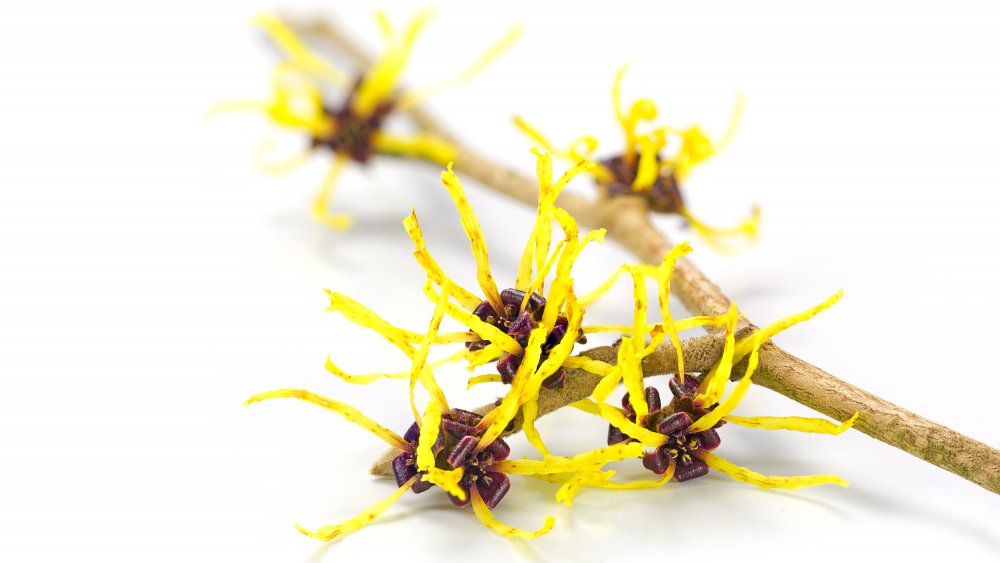Is Witch Hazel Bad For Your Skin?
We may receive a commission on purchases made from links.
Witch hazel is a botanical extract derived from a plant known as Hamamelis virginiana. As Erin Gilbert, director of Gilbert Dermatology in New York, told Allure, "The [aid] of preparations made from its leaves and bark have been used for ages, and it has a number of skin benefits including being soothing, acting as an anti-inflammatory, and having antioxidant properties." You'll often see it recommended for acne-prone skin online, but how accurate are Gilbert's claims? Is witch hazel actually bad for your skin?
According to Joshua Zeichner, the director of cosmetic and clinical research at Mount Sinai Hospital in New York City, witch hazel can be useful for those with acne. "It's commonly used as a means of removing excess oil from the skin, so it can be especially useful in people struggling with acne," he explained to Allure. However, he also noted that when it comes to witch hazel, there is such thing as too much of a good thing, warning acne sufferers to be cautious of the amount they use as it does have the ability to irritate and dry the skin.
Witch hazel has been known to dry and irritate skin
According to Paula's Choice Skincare, the reason witch hazel has the tendency to dry skin when over-used is because of an antioxidant called tannins. Short-term, tannins can provide great skin benefits, however, it's the long term where there's an issue. Paula's Choice states that almost all products containing witch hazel are distilled with alcohol, which can cause further damage to the skin, meaning the combination of tannins and alcohol is not ideal. Worse still, they usually also contain oil from eugenol, which is believed to be potent and another irritant for skin. Paula's Choice claims this combination can actually worsen acne and make oily skin oilier.
Ultimately, witch hazel is good for some skin types and bad for others. Like most beauty and skincare products, until you use the product yourself, you have no idea how your skin is going to react, so it's simply a case of experimenting.

